Lek Chailert’s team had just finished their new skywalk at the elephant rescue and rehabilitation centre when disaster struck.
As the founder of Save Elephant Foundation, which runs the Elephant Nature Park near Thailand’s northern tourist hub of Chiang Mai, Lek could never have envisaged how the microscopic novel coronavirus – cause of the Covid-19 pandemic – could wreak havoc on the giant animals in her care.
As of April 7, Thailand has confirmed a total of 2,258 cases of Covid-19 infection. Medical officials say 27 people have died from the viral disease, which has spurred the Thai government to join others across Asia in enacting curfews, mandatory social distancing and travel restrictions.
While this has already disrupted daily life for millions of Thai residents, it has also devastated the country’s major tourism industry. The Tourism Authority of Thailand reports that new arrivals plummeted by more than 44% in February compared to the prior year, much to the dismay of those who depend on such travellers to pay the bills.
Among the victims of this downturn in tourism are Thailand’s thousands of elephants.
As the industry cracked, Lek’s team at the Elephant Nature Park had just finished building the skyway for visitors to discreetly observe 87 resident elephants as they roam the sanctuary grounds. But the public unveiling of this new feature has now been postponed.
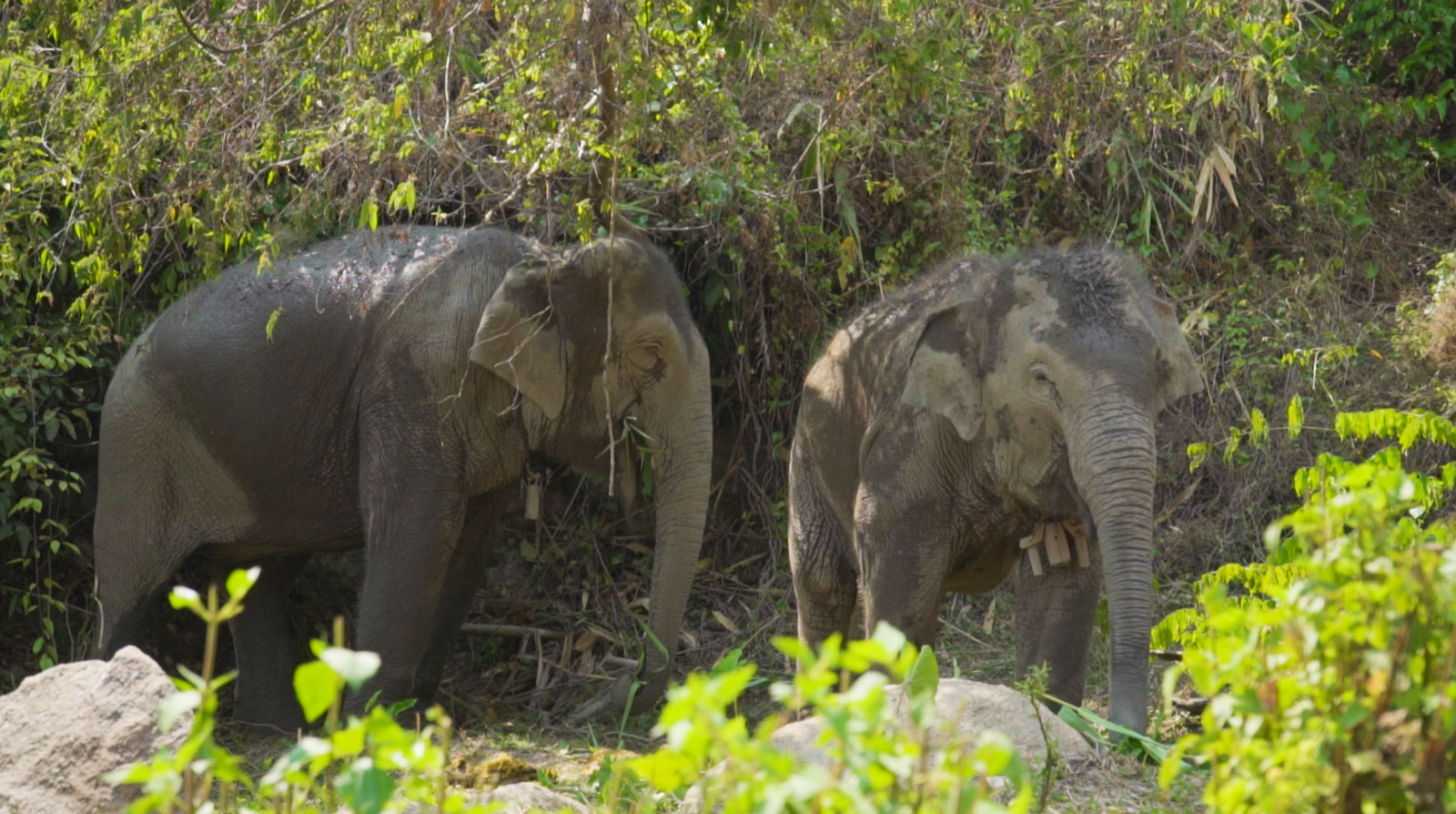
The near absence of tourists means that many elephant owners are struggling to feed their charges. Across the country, tourism-related staff hours have been slashed and, at some attractions, elephants are deprived of exercise and appropriate bathing and water access. In the worst cases, elephants are tethered in chains in concrete stalls.
Renowned as a leader in elephant welfare, Lek is working with local volunteers and Save Elephant Foundation supporters to alleviate this nationwide crisis. Since it began, her foundation has already assisted more than 620 elephants in Thailand through food donations, volunteer support and financial aid – but many more are awaiting support.
“I have been to visit many of the camps and the situation is very serious,” Lek said. “Of the 3,800 captive elephants in Thailand, around 2,500 are struggling.”
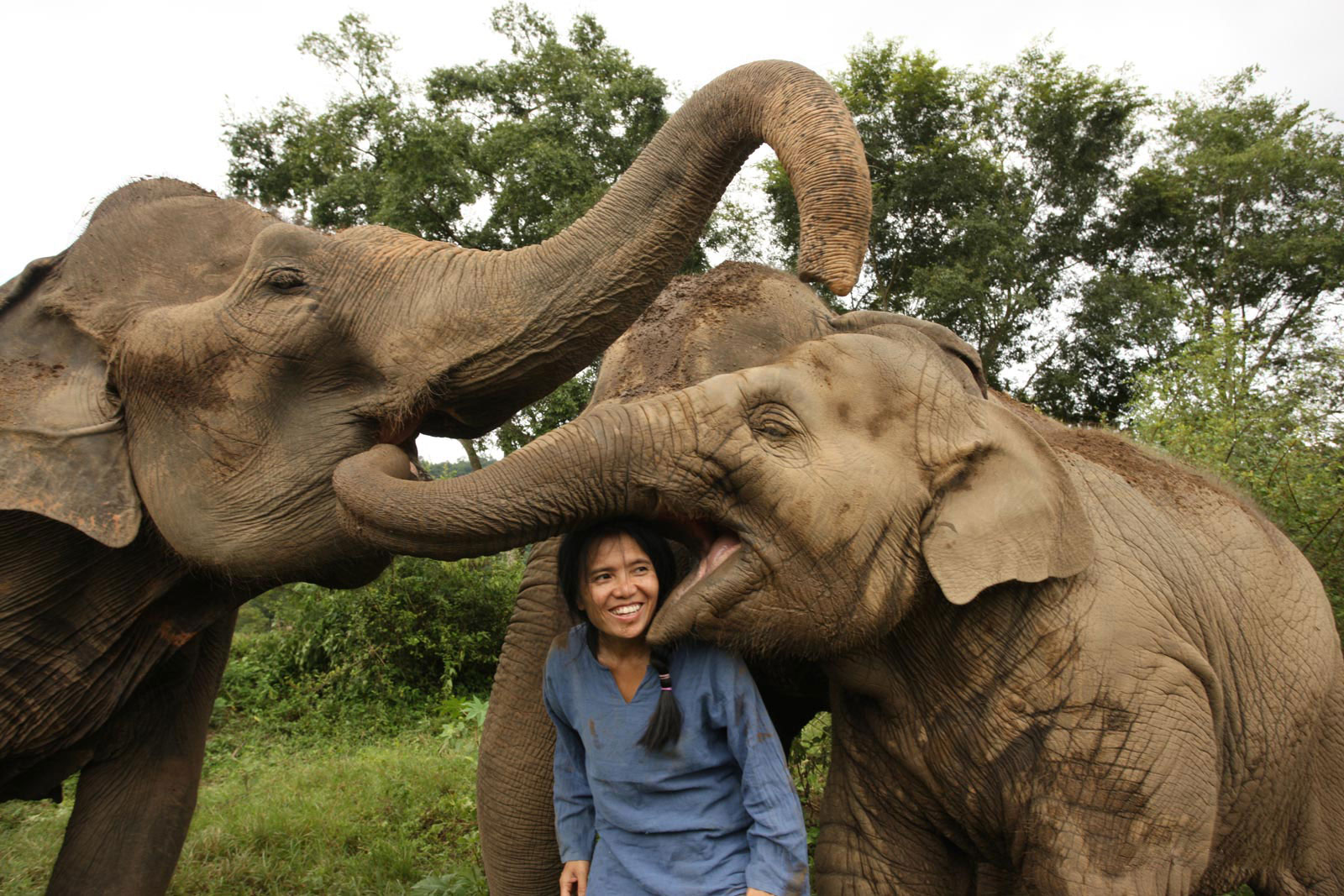
Elephant attractions cannot cut back their business expenses in times of hardship. Elephants require regular veterinary care and must eat 6-8% of their body weight every day – no lightweight running cost. The food bill can be up to $40 per elephant per day – more than three times the Thai minimum daily wage. Ultimately these expenditures are paid for from the tourism purse.
It is not simply a question of whether the elephants can get enough to eat … The quality of their food will have an impact on their health over time
Chatchote Thitaram
“Some facilities have already overrun their limited budgets,” says Theerapat Trungprakan, president of the Thai Elephant Alliance Association group of elephant attraction operators. He hopes for a Government-led emergency financial plan to boost private donations to support immediate elephant welfare needs and provide for long-term business recovery.
“It is not simply a question of whether the elephants can get enough to eat,” points out Chatchote Thitaram, a veterinary specialist and director of the Center of Excellence in Elephant Research and Education, Chiang Mai University. “The quality of their food will have an impact on their health over time.”
Thailand is in its driest season, blighted by forest fires and hazardous air quality. The parched vegetation is unsuited to elephants, which means food must be bought from external suppliers, adding to the financial burden. Many owners can only afford the basics.
“Normally captive elephants eat a variety of food, not just grass,” Chatchote says. Maize plants and bamboo are good for their digestion, and sugar cane and fruit provide vital nutrients. “Any change from a varied diet will have an effect on the gastrointestinal system of an elephant.”
Possible complications include bloating and cholic – a condition that can prove fatal.
Food security is currently the most urgent need, but in the months to come elephants may develop mental health issues through isolation from social interaction and deprivation of exercise.
“Many attraction workers are being asked by their families to return to their villages to lower the risk of infection from Covid-19,” says Theerapat of the Thai Elephant Alliance Association. As elephants are left with fewer carers, their routines of exercise and bathing are inevitably curtailed.
“It is not good for elephants to remain in concrete enclosures,” Theerapat said. “Their physical, mental and emotional wellbeing are affected. If the situation persists, we may begin to see more and more elephants with health problems.”
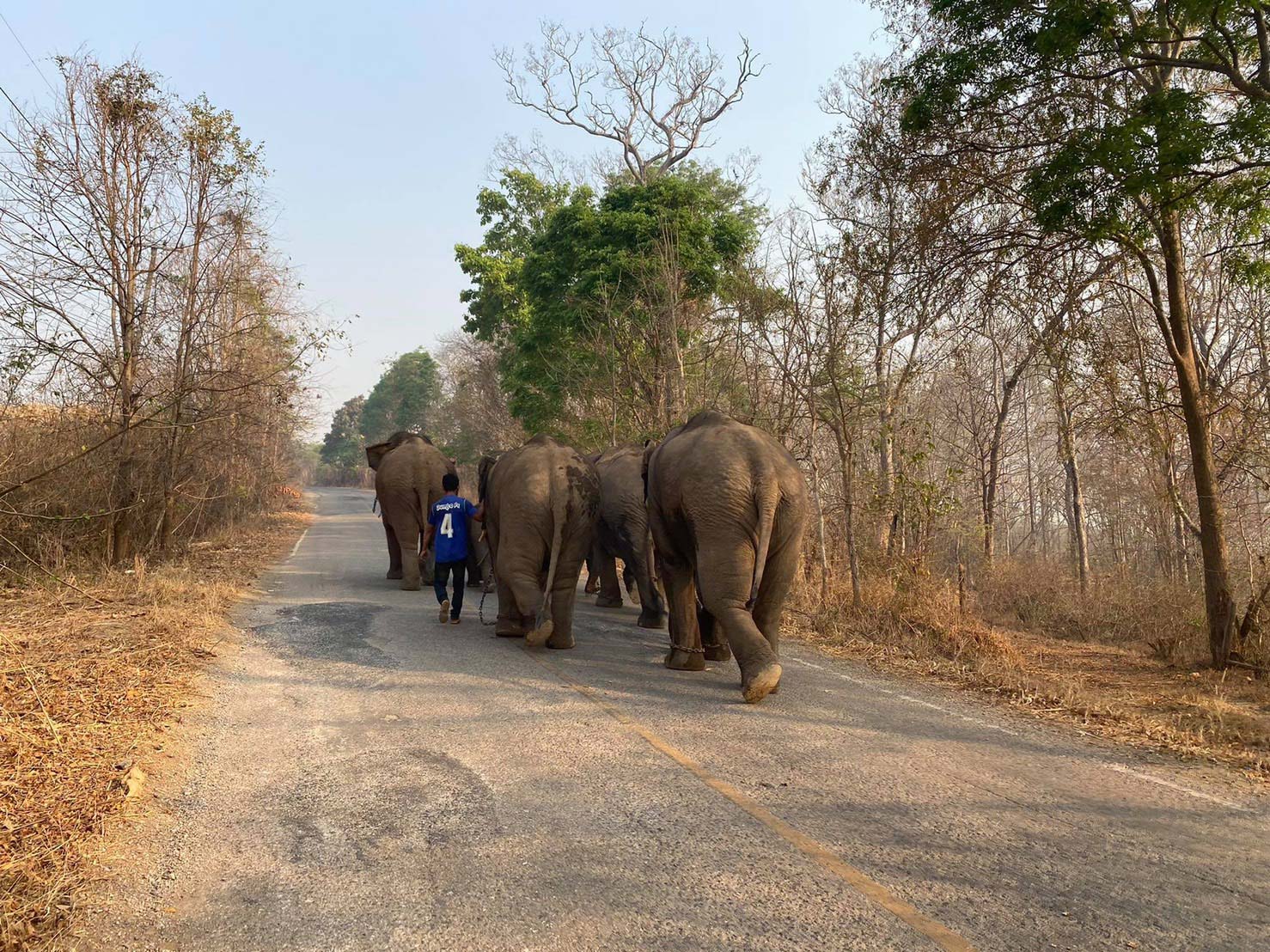
Thailand has a world-class network of elephant veterinary specialists, and mobile clinics routinely travel to remote parts of the country to administer treatment and train mahouts, traditional elephant keepers, in elephant first aid.
However – in a parallel to the human condition during this pandemic – if too many elephants require treatment, the current healthcare capacity will be overstretched.
Asian elephants are endangered, with less than 50,000 remaining in the wild across 13 countries. Captive elephants outnumber those in the wild in Thailand, with recent estimates of the wild population between 1,650 and 3,700.
The relationship between human and elephant stretches back centuries in Thailand, with captive elephants traditionally cared for on a one-to-one basis by a mahout through an intimate lifelong relationship.
Historically, captive elephants were used in Thailand’s logging industry to haul timber through the forests. A Thai government ban on this activity in 1989 left elephants and mahouts searching for new livelihoods, often pushing them toward more-precarious activities to earn their livings.
Some elephant owners continued to work their animals in illicit logging, relocating to remote regions where the ground was still pitted with land mines. Others migrated to cities, forced to beg in the streets or perform to entertain tourists.
But over the years, the level of care of captive elephants has gradually improved as more intensive or dangerous forms of labour has given way to a tourist-focused approach.
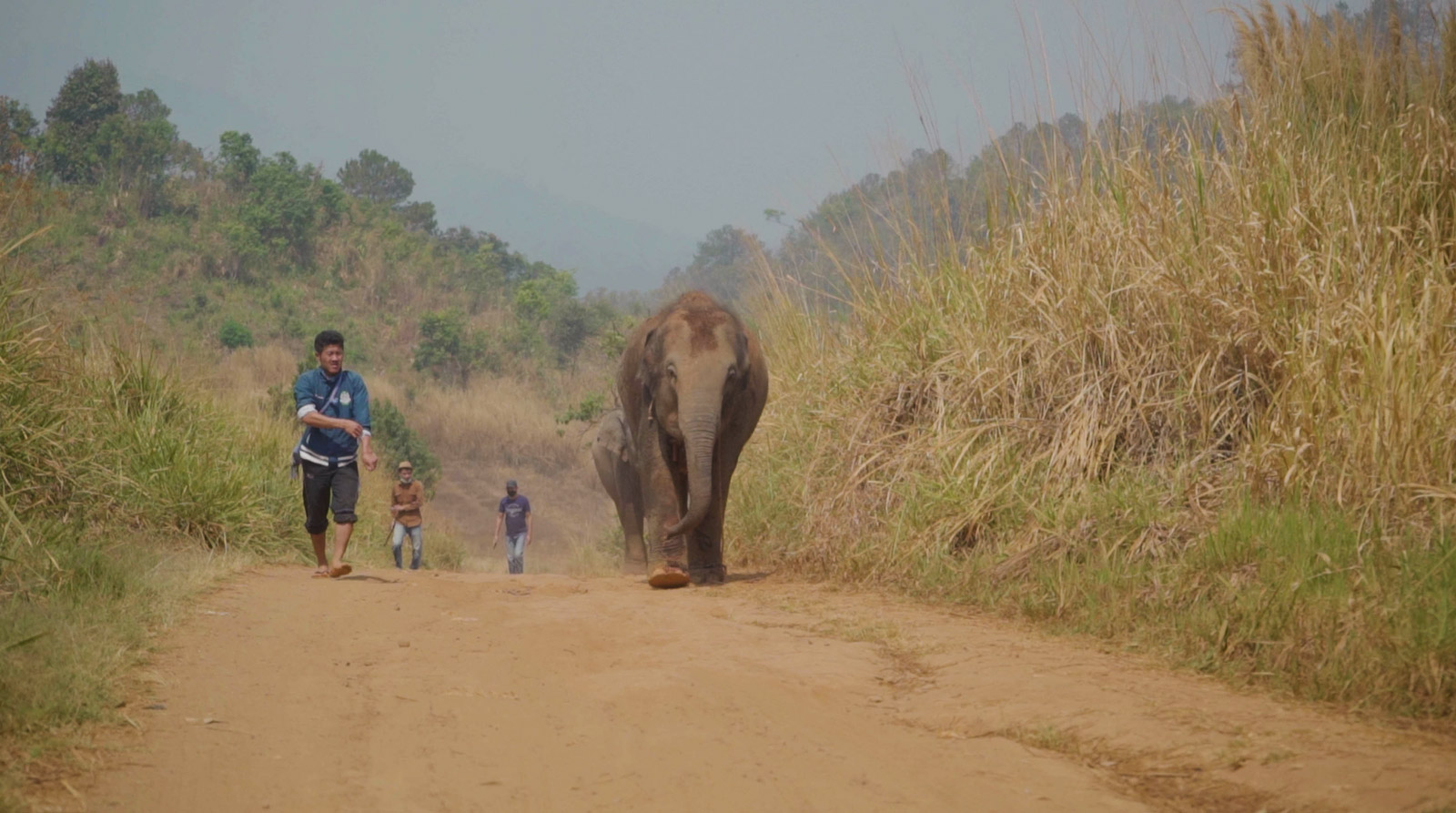
“It is the existence of tourism that allows owners to provide good care for their elephants,” Theerapat said.
The Covid-19 crisis threatens to destabilise this equilibrium. As tourist attractions buckle under financial pressure, some are forced to relinquish their elephants. This is already happening, Lek said, adding that Save Elephant Foundation recently accepted three elephants into its care from a nearby attraction that had closed.
However, sanctuaries have limited space for homeless elephants. Owners and mahouts are being forced to find alternatives to tourist income and there is a real risk of the re-emergence of dangerous historic livelihoods.
“Some mahouts told me that if there is little tourist movement within 6-12 months, they may have no choice but to return to logging work, or resort to begging in the streets,” Lek said. “These are highly questionable means of survival that bring deep concerns for the elephants’ futures.”
Some mahouts are moving their animals from tourist areas to their home villages, where they hope to care for their elephants in the forest. Save Elephant Foundation recently took food to a group of Karen tribesmen who were making an arduous trek on foot alongside their elephants.
With elephants across the country in risk of starvation and diminished welfare standards, or facing an increasingly uncertain future alongside their mahouts in the forest, Lek said the fates of the animals should be separated from that of the tourism industry.
“This pandemic is teaching us a lot of lessons,” says Lek. “We cannot depend solely on tourism. What would happen if the virus returns year after year? When caring for animals, we must prepare for the worst and we must have a plan for the future.”
For Lek, such a plan means anything is possible. Even still, she thinks freeing all captive elephants into the forest is an unlikely outcome; there is simply not enough forest left to sustain such a large number of captive animals without a likelihood of conflict with human populations.
Nonetheless, Lek said she hopes that one day all elephants will have the opportunity to live in conditions comparable to her own rescue sanctuary, where elephants roam free from chains.
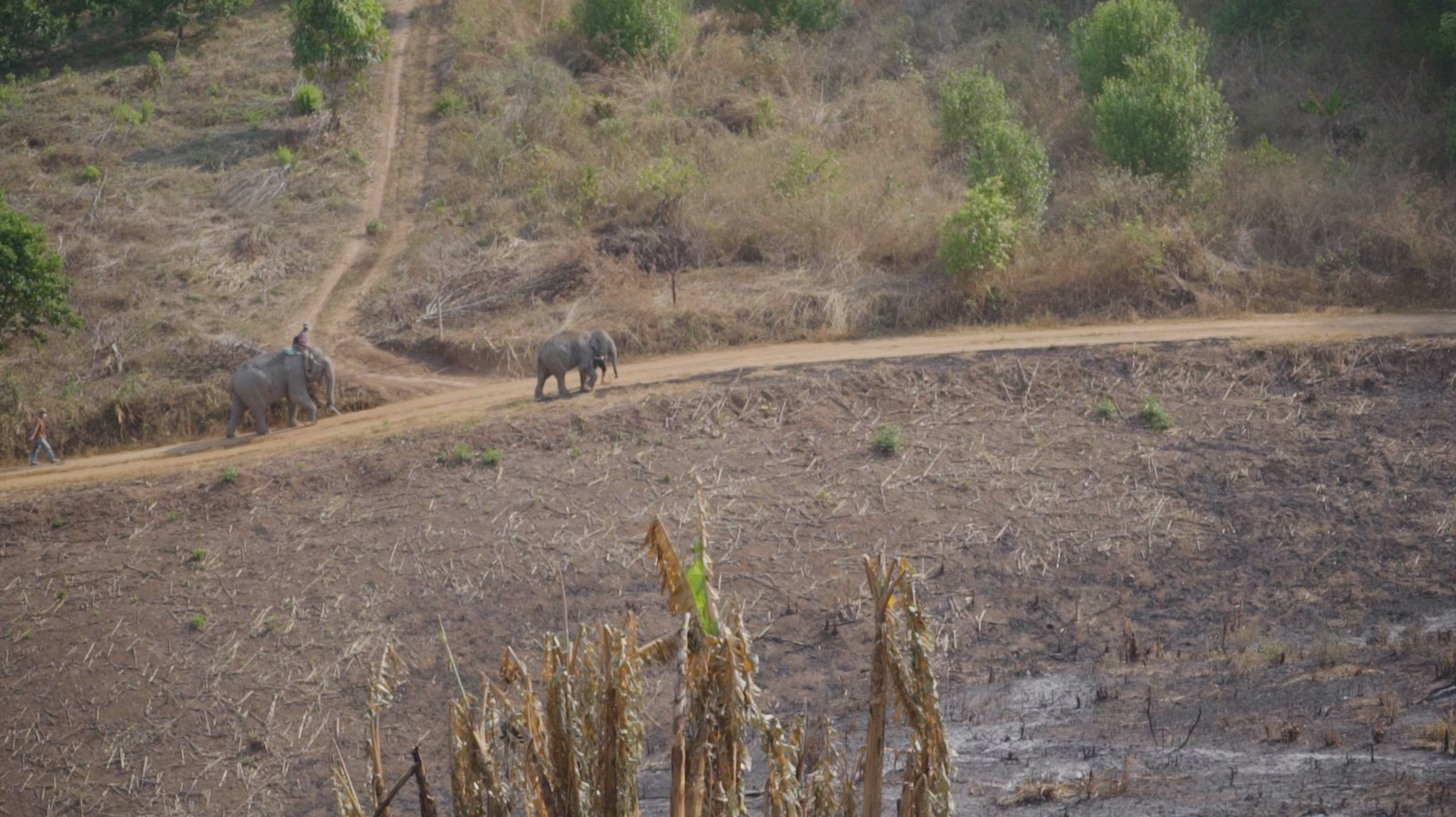
Others have broader goals for the captive giants.
“Although rescue sanctuaries can provide a good life for the elephants, there are still limitations to how far an elephant’s natural needs can be met,” says Liv Baker, research director with Mahouts Elephant Foundation. Her organisation works closely with some Karen communities in northern Thailand who care for elephants within their villages.
Baker is researching a system of elephant rescue, rehabilitation and rewilding that allows small numbers of captive elephants to live freely in the forest, forage a natural diet, form organic social groups and express their full behavioural range. Her approach is based on a safari-style model of elephant tourism in direct partnership with experienced mahouts.
Although plans to release captive elephants into Thailand’s forest are a long way from implementation, Baker says it presents a win-win scenario if done correctly. Such a rewilding programme could offer improved elephant welfare, community empowerment and enhanced biodiversity.
But acting on this model requires a pivotal change in thinking – one that advocates say has been clearly underscored by the ongoing devastation of the tourism industry.
“For captive Asian elephants, this is a defining moment,” Baker said. “Perhaps this pandemic will present a great impetus for rethinking how we take care of elephants.”


